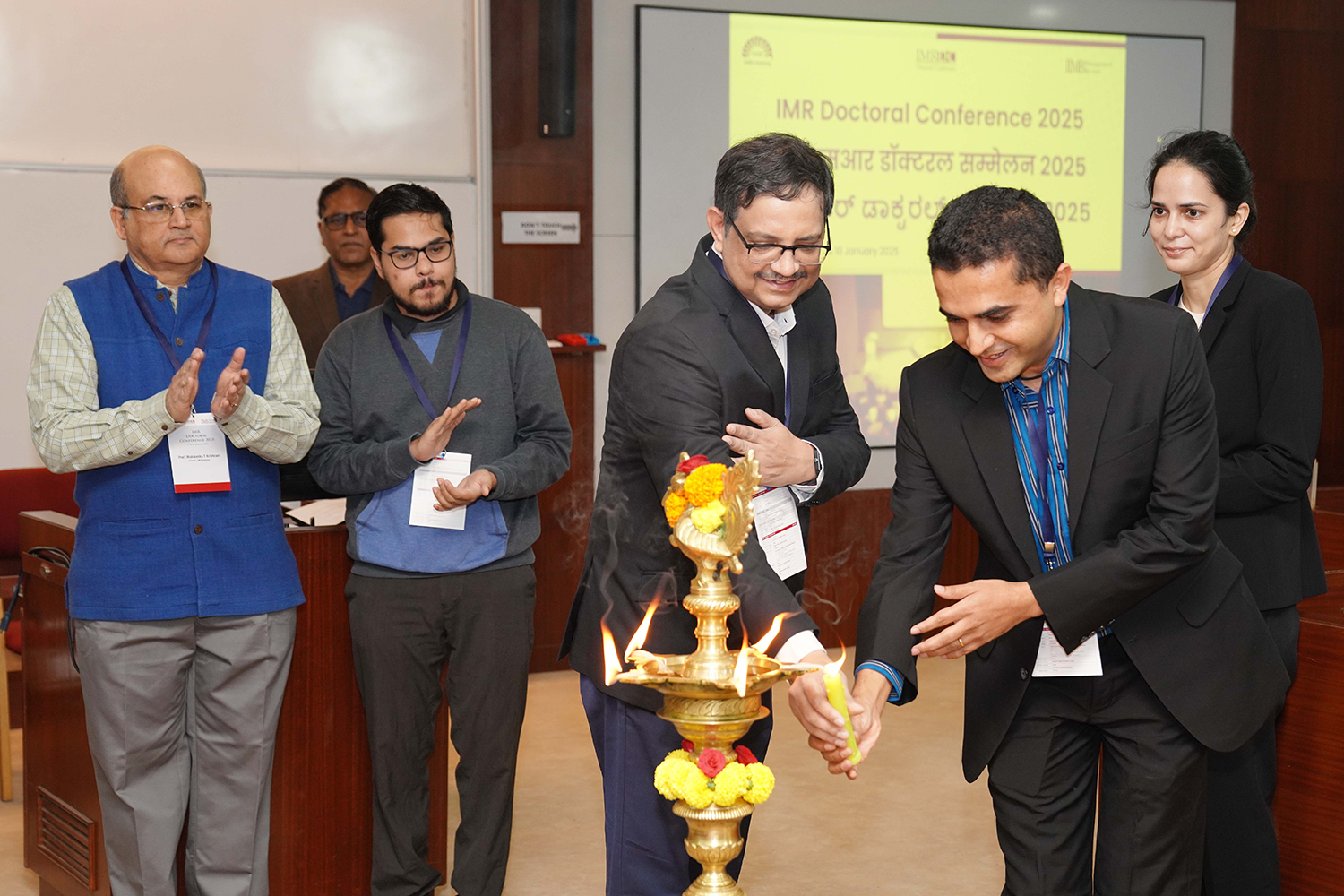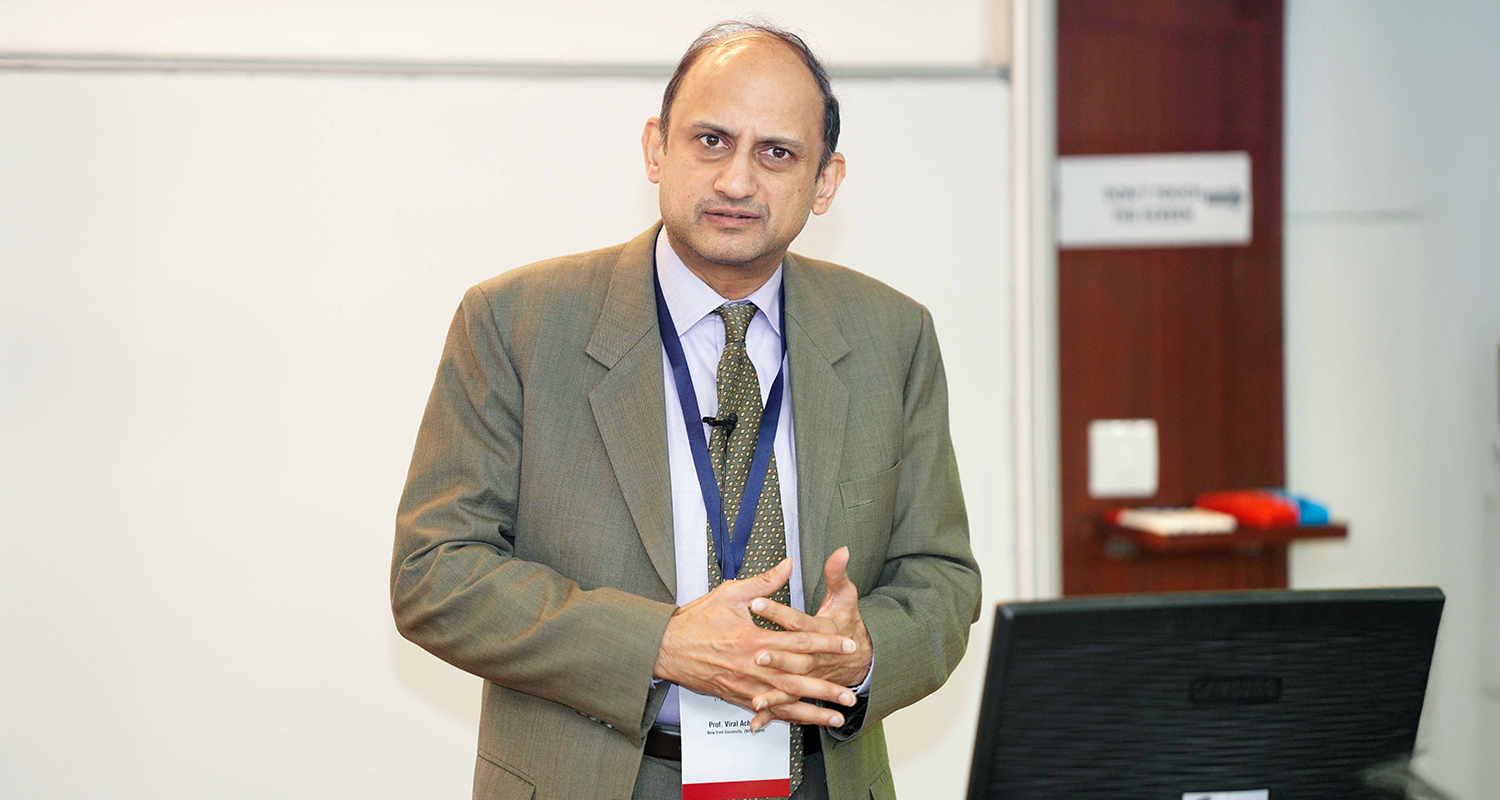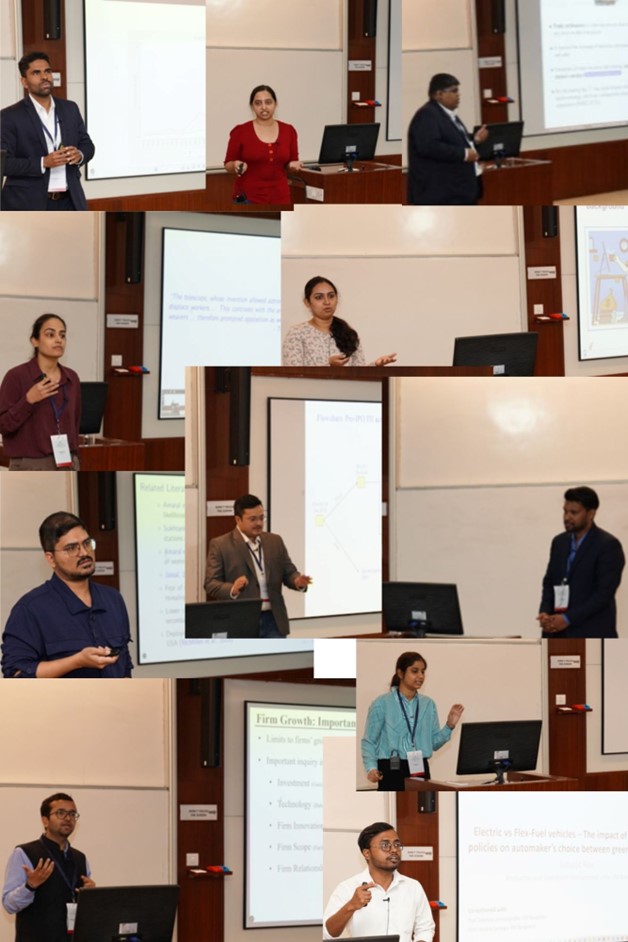
The 16th edition of the IMR Doctoral Conference over two full days of intense academic engagement, brought together eminent scholars, young doctoral students and interested delegates from across the country for an enriching exchange of ideas on the 17th & 18th of January 2025.
Consolidating its position as a niche and unique doctoral colloquium, IMRDC 2025 was, yet again, much commended for its “One Exclusive Discussant per selected paper” format, which immensely benefitted the doctoral community, as expressed by several participants.
Here are some glimpses into the action-packed 2-day Conference held on the IIMB campus.

Prof. Rishikesha T Krishnan, Director, IIM Bangalore, inaugurated IMRDC 2025. Highlighting IIMB Management Review’s growing stature as a leading Management Journal globally, he emphasised that the IMR Doctoral Conference was IIMB’s long-term value investment into doctoral research. Prof. Sushanta K Mishra, the IMR Editor-in-Chief, spoke of the conference’s growth since 2009 and its significant impact, while Prof. Aditya Shrinivas, Co-Chair, IMRDC 2025, elaborated on the rigorous 4-tier review process and IMRDC’s focus on PhD students' welfare. The Lighting of the Lamp symbolised the commencement of the Conference.
Banking Sector in India: The Past, the Present and the Future by Prof. Viral Acharya, Professor, NYU-Stern

IMRDC 2025 was honoured to have a Keynote Address by Prof. Viral Acharya, Professor, NYU-Stern and eminent international academic, provided an overview of the stabilization of the Indian banking sector over the past decades, highlighting challenges and suggestions for the way forward.
Professor Acharya emphasized how India's banking system is influenced by both economic and political factors, and that very often banks are used by the Government to achieve delivery of populist expenditure. He spoke of institutional reforms aimed at lowering inflation, borrowing costs, external sector stability, banking sector health, financial inclusion and credit penetration, and fiscal stability.
Drawing from his research, Professor Acharya elaborated on NPAs, Stressed Assets Ratio, Capital Inflation by Government of India in PSBs and Yearly Growth in Advances. On Digital Finance he said, 'India got this right, right from the very beginning. In a reference to the ‘savings glut of the rich’, he elaborated on concentrated wealth gains and corporate profits vis a vis real wages in the formal, informal, and rural sectors.
Professor Acharya highlighted that 'Research can be very helpful at times to be applied to policy – it helps you realize what the bad ideas are’ and suggested that the doctoral students present derive topics for their future research based on his talk. The address concluded with a Q&A session.
Panel Discussion: "Academic Job Market: Recruiters’ Perspective"
An informative and thought-provoking Panel Discussion on the "Academic Job Market: Recruiters’ Perspective" featured distinguished academics from top business schools in India – Prof. Anirban Adhikary, Prof. Shubhasis Dey, Prof. Janakiraman Moorthy, and Prof. Ranjeet Nambudiri. Moderated by Prof. Chetan Subramanian from IIM Bangalore, the session also addressed crowd-sourced questions from PhD students, offering valuable insights into recruitment trends and expectations, sparking significant interest among the audience.
Somak Mukherjee of IIM Calcutta won The IMRDC 2025 Best Paper Award for his paper “Is the trading pattern of foreign institutional investors prior to IPOs indicative of their interest in the IPO stocks?”. He was presented the Award by Prof Mukta Kulkarni, Dean (Programmes), IIMB at the Valedictory and Awards Ceremony at the end of Day 2 of the Conference. Prof. Kulkarni emphasised that the participants at the Conference should take back with them a “Network of Ideas” along with the academic and social network they created at IMRDC.
The IMRDC 2025 Best Critique Award was co-awarded to the following students from among the PhD and PreDoc students who were invited to critique the eleven paper presentations at the Conference.

Eleven papers were selected for Presentation at the Conference, from over 100 Full Papers submitted to IMRDC 2025. The selected doctoral candidates presented their work and received valuable insights from their dedicated “exclusive discussant” for the paper with overarching suggestions for the doctoral community as well. This was followed by a Q & A which evoked considerable participation from the audience.